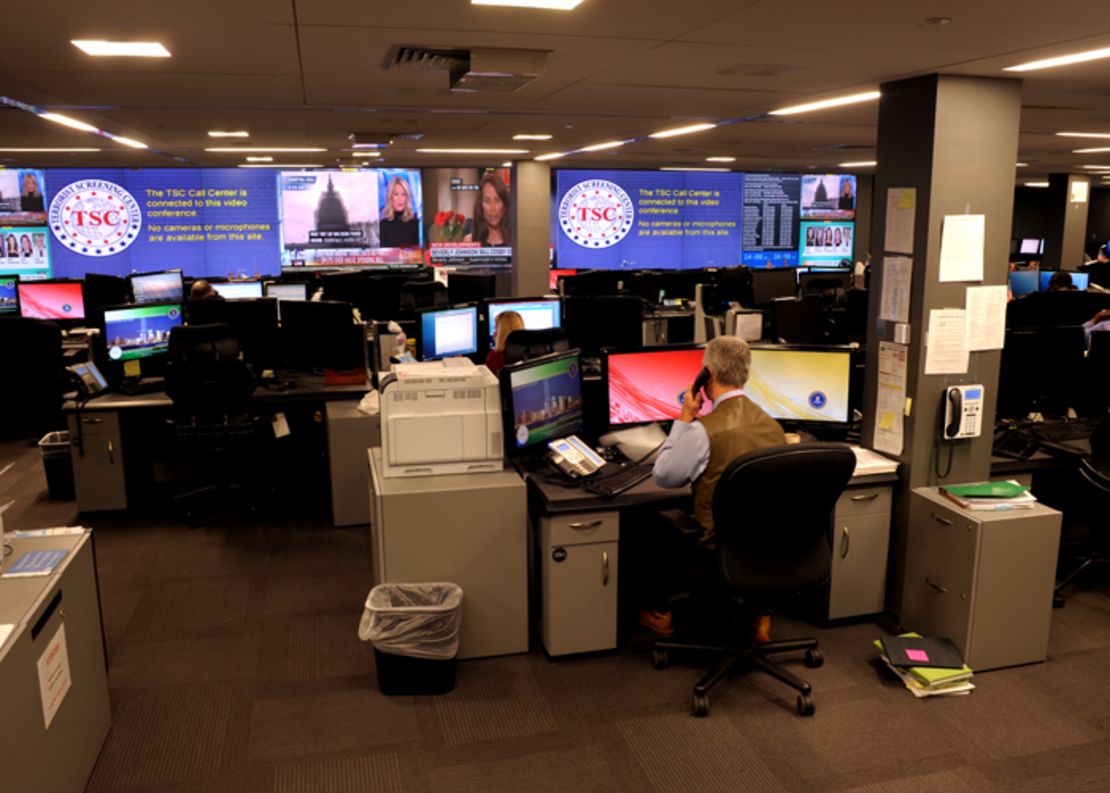Story highlights
Terrorist Screening Center Director Christopher Piehota told CNN that European officials aren't using terror tracking tools
Europe does not make use of a central terror database and each country has its own terrorist watch list
A top U.S. counterterrorism official in charge of ensuring terrorists do not make it into the United States said European countries can do more to screen terrorists because they don’t take full advantage of tools the U.S. has offered in the fight against terrorism.
“It’s concerning that our partners don’t use all of our data,” said Terrorist Screening Center Director Christopher Piehota in an exclusive interview with CNN. “We provide them with tools. We provide them with support, and I would find it concerning that they don’t use these tools to help screen for their own aviation security, maritime security, border screening, visas, things like that for travel.”
Piehota said the U.S. shares its watch lists with EU countries, but that EU countries don’t systematically utilize it to identify suspected terrorists or screen migrants coming.
The European Union does not utilize a central terror database; instead, each country maintains its own terrorist watch list that comes with its own unique set of standards for tracking terrorists. Further complicating matters the 26 European countries that operate inside the “Schengen zone” do not perform routine border checks.
Piehota said all European countries cooperate with the United States to varying degrees and information sharing has greatly improved in the wake of the ISIS threat.
RELATED: Brussels attack: How officials failed to join dots
The daunting task of guarding the United States from foreign terrorists, he says, has become more challenging with the evolving ISIS threat in Europe.
One chief concern is foreign nationals from visa-waiver countries who do not appear on any watch list could possibly slip into the U.S. to launch an attack. For example, would-be terrorists can surreptitiously travel to and from Syria from Europe and then travel to the U.S. without ever arousing the suspicion of government officials on either continent.
“There are many that we do know about. And unfortunately there are some that we do not know about,” Piehota said.
Counterterrorism officials like Piehota also worry about the ISIS terrorists believed to still be in Europe and possibly plotting future attacks. One such person is the man in the hat seen in the Brussels airport surveillance video who remains on the run.

“It’s highly concerning,” he said. “We make sure that we know as much as we can. And we take that information and we use it the best we can to minimize threats to our communities. But we can’t know everything all the time.”
European officials have acknowledged the gaps in coverage and communication in the weeks following the Brussels attacks.
“The fragmented intelligence picture around this dispersed community of suspected terrorists is very challenging for European authorities,” said Rob Wainwright, director of the European Police Agency known as Europol.
The EU’s Counter-Terrorism Chief Gilles de Kerchove told CNN that he was aware of problems in getting member states to act.
“I do my best to put pressure, to confront them with blunt figures, and we are making progress, but not quickly enough,” he said.
The European Union has been examining the sharing of passenger information for at least six years, and the European Parliament is expected to consider a measure related to that issue this month. Some members oppose the idea on privacy grounds.
“That will require difficult discussions with European Parliament, because we’re sensitive about balance between security and freedom,” de Kerchove said last month.
Piehota also echoed the sentiment from FBI Director James Comey that there’s risk with the U.S. plan of allowing 100,000 refugees into the U.S. a year by 2017 partially because of the lack of intelligence on people in Syria.
“Nothing we can guarantee is at a 100% level,” Piehota said, adding he believes the vetting process is rigorous with a layered approach of screening, evaluation and assessment for the refugees who will be cross-referenced with all the U.S. watch lists.
Piehota also addressed what he called “incorrect perceptions” about the U.S. watch lists, many that have been repeated by presidential candidates on the campaign trail claiming a majority of people on the lists are innocent Americans.
Although declined to say how many people are on the watch list, he did say Americans “comprise less than 0.5% of the total populations. Very small, controlled population,” adding that those on the list are consistently re-evaulated with 1,500 changes to the list on average per day.
In order to add an individual to a terror watch list, authorities must have “reasonable suspicion” that the person has ties to terrorism. That standard has been cause for criticism from civil liberties groups who believe the bar should be higher to be put on the list.
“If we make the standards too high, we’re going to miss people, potentially, who are suspected terrorists who may be in the planning or plotting phases, we will miss them,” Piehota said. “If we make it too low, then we will impact the privacy and the civil liberties of the public, so we use the reasonable suspicion standards as a compromise between those two extremes to make sure that people are screened against a standard, that we consider to be suitable for watch listing.”
When asked about whether anyone could be watch-listed based on being a Muslim – as Republican presidential front-runner Donald Trump has proposed – Piehota would only say, “No watch listing activity is conducted based up on their race, religion or any other protected right.”
“There has to be a certain level of derogatory information, particularized to that individual that would warrant their watch-listing,” he said.
CNN’s Tim Lister contributed to this report.


